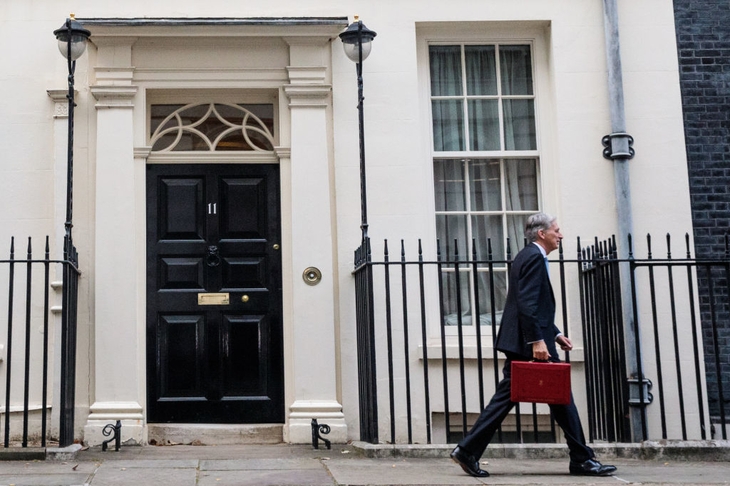As Nick Clegg, George HW Bush and many other politicians have proved to their cost, manifesto promises matter. How damaging, then, will Philip Hammond’s brazen abandonment of the 2017 Conservative pledge be, whereby financial discipline was supposed to ‘guide us to a balanced budget by the middle of next decade’? Now, Hammond seems to be trying to tell us that running a public deficit doesn’t really matter. While George Osborne delayed and delayed the date he promised to bring the public finances back into balance, Hammond has apparently abandoned any idea of ever doing so. There is now no target for eliminating the deficit at all.
It is hardly as if there was any pressure on the Chancellor to drop his manifesto promise – as he says, public borrowing has come in lower this year than was forecast a year ago. He could have stuck to his spending plans and brought forward the elimination of the deficit. Instead, he has increased spending and cut some taxes – bringing forward his proposed increase in tax thresholds and freezing duty on beer, wine and spirits. He has also extended the freeze on fuel duty – in effect bringing about a real-term cut in tax.
Will voters be impressed by Hammond’s abandonment of a manifesto promise? I wouldn’t count on it. While tax cuts are all very nice, the public are not stupid – they can spot when tax cuts and spending rises are not affordable. Asked to report on Ed Miliband’s failure to win the 2015 election, Labour MP Jon Cruddas concluded that Cameron won not in spite of austerity but because of it – voters accepted the argument that the state was living beyond its means and wanted something done about it. There are some Conservatives who lost their seats in 2017 who felt that the atmosphere had changed by then – notably Gavin Barwell, now Theresa May’s chief of staff. But Hammond’s grandiose declaration that it is the ‘end of austerity’ could very easily come back to bite him.
So long as we have any deficit at all, government debt grows – as does the cost of servicing that debt. This year, the government will spend £54 billion paying interest on its debt – more than it will spend on education (£42.7 billion), defence (£42.2 billion) or transport (£22.5 billion). And that is with interest rates still at 400 year lows. If Hammond feels that is affordable now it will seem very different when, as is inevitable, the next recession arrives. As Gordon Brown and Norman Lamont both found, a deficit can swell uncontrollably when growth turns negative. And next time there will be no prospect of the government being bailed out by lower interest rates. Remarkable though it may seem now, Gordon Brown was running surpluses early on in his chancellorship. Nigel Lawson, too, was running a surplus in advance of the early 1990s recession. Run a deficit in the good times and a Chancellor is doomed in the bad.
Hammond said today that a balanced budget was not an achievement in itself. Those are words he may very well come to regret.








Comments